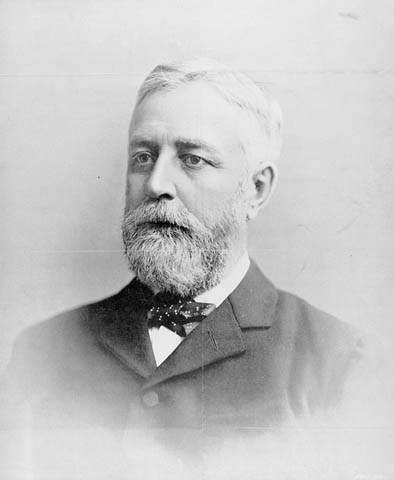Browse "Things"
-
"https://development.thecanadianencyclopedia.ca/images/tce_placeholder.jpg?v=e9dca980c9bdb3aa11e832e7ea94f5d9" // resources/views/front/categories/view.blade.php
https://development.thecanadianencyclopedia.ca/images/tce_placeholder.jpg?v=e9dca980c9bdb3aa11e832e7ea94f5d9
-
Article
Woodstock
"Woodstock." Song in the contemporary folk style, in the key of E minor; music and lyrics by Joni Mitchell. "Woodstock" enshrines the seminal August 1969 music festival of that name; Mitchell wrote it while watching the festival on television.
"https://development.thecanadianencyclopedia.ca/images/tce_placeholder.jpg?v=e9dca980c9bdb3aa11e832e7ea94f5d9" // resources/views/front/categories/view.blade.php
https://development.thecanadianencyclopedia.ca/images/tce_placeholder.jpg?v=e9dca980c9bdb3aa11e832e7ea94f5d9
-
Article
Woodward and Evans Light Bulb
In 1874, Canadians Henry Woodward and Mathew Evans patented a design for an incandescent light bulb. Their invention preceded that of American Thomas Edison by several years. In fact, the second patent (issued in 1876 in the United States) was among those that Edison bought as he refined the technology to create a longer-lasting bulb. Woodward and Evans’s early work on the light bulb in Toronto has gone largely unrecognized. It was nevertheless an important development in the invention of electric lighting. Click here for definitions of key terms used in this article.
"https://d2ttikhf7xbzbs.cloudfront.net/media/new_article_images/WoodwardEvansLightBulb/Woodward_Evans_patent_crop.jpg" // resources/views/front/categories/view.blade.php
https://d2ttikhf7xbzbs.cloudfront.net/media/new_article_images/WoodwardEvansLightBulb/Woodward_Evans_patent_crop.jpg
-
"https://development.thecanadianencyclopedia.ca/images/tce_placeholder.jpg?v=e9dca980c9bdb3aa11e832e7ea94f5d9" // resources/views/front/categories/view.blade.php
https://development.thecanadianencyclopedia.ca/images/tce_placeholder.jpg?v=e9dca980c9bdb3aa11e832e7ea94f5d9
-
Article
Workers' Compensation
Workers' compensation is the name of legislation designed to provide benefits, medical care and rehabilitation services to individuals who suffer workplace injuries or contract occupational diseases. (See also Social Programs in Canada.)
"https://d2ttikhf7xbzbs.cloudfront.net/sirwilliamralphmeredith/williamralphmeredith.jpg" // resources/views/front/categories/view.blade.php
https://d2ttikhf7xbzbs.cloudfront.net/sirwilliamralphmeredith/williamralphmeredith.jpg
-
Article
Workers' Educational Association
Workers' Educational Association, was founded in Toronto in 1918 by university professors and trade unionists interested in providing, on the model of the British WEA, noncredit evening classes for working people.
"https://development.thecanadianencyclopedia.ca/images/tce_placeholder.jpg?v=e9dca980c9bdb3aa11e832e7ea94f5d9" // resources/views/front/categories/view.blade.php
https://development.thecanadianencyclopedia.ca/images/tce_placeholder.jpg?v=e9dca980c9bdb3aa11e832e7ea94f5d9
-
Article
Workers Unity League
Workers Unity League the Workers Unity League (WUL) is a national trade union federation that was formed in 1929 on the initiative of the Communist Party Of Canada in line with the decision of the Communist International (Comintern) in 1928 that communists break with their previous policy of working inside existing labour parties and labour unions to push for more militant stances. The new policy stressed the need for revolutionary organizations independent of the existing...
"https://development.thecanadianencyclopedia.ca/images/tce_placeholder.jpg?v=e9dca980c9bdb3aa11e832e7ea94f5d9" // resources/views/front/categories/view.blade.php
https://development.thecanadianencyclopedia.ca/images/tce_placeholder.jpg?v=e9dca980c9bdb3aa11e832e7ea94f5d9
-
Article
Working-Class History
Working-class history is the story of the changing conditions and actions of all working people. Most adult Canadians today earn their living in the form of wages and salaries and thus share the conditions of dependent employment associated with the definition of "working class."
"https://d2ttikhf7xbzbs.cloudfront.net/media/media/74917b1f-8a36-49c3-99fd-4cf328a0bfa3.jpg" // resources/views/front/categories/view.blade.php
https://d2ttikhf7xbzbs.cloudfront.net/media/media/74917b1f-8a36-49c3-99fd-4cf328a0bfa3.jpg
-
Article
Working Class History: Québec
Most adult Canadians earn their living in the form of wages and salaries and are therefore associated with the definition of "working class." In Québec, working people and unions have played an essential role in the province's development.
"https://d2ttikhf7xbzbs.cloudfront.net/media/media/222d14f9-a2d1-4eec-b95b-7c351a0c229b.jpg" // resources/views/front/categories/view.blade.php
https://d2ttikhf7xbzbs.cloudfront.net/media/media/222d14f9-a2d1-4eec-b95b-7c351a0c229b.jpg
-
Article
Working Class History: English Canada
Most adult Canadians earn their living in the form of wages and salaries and are therefore associated with the definition of "working class." Less than a third of employed Canadians typically belong to unions. Unionized or not, the struggles and triumphs of Canadian workers are an essential part of the country's development.
"https://d2ttikhf7xbzbs.cloudfront.net/media/media/554f9da9-f4b3-4173-91d6-cfe9ae8b67a9.jpg" // resources/views/front/categories/view.blade.php
https://d2ttikhf7xbzbs.cloudfront.net/media/media/554f9da9-f4b3-4173-91d6-cfe9ae8b67a9.jpg
-
Article
World Hockey Association
World Hockey Association, professional HOCKEY league established 1971 (first season of play was 1972-73) to challenge the NATIONAL HOCKEY LEAGUE. Canada was well represented in the new league, with teams in Ottawa, Québec City, Edmonton and Winnipeg.
"https://development.thecanadianencyclopedia.ca/images/tce_placeholder.jpg?v=e9dca980c9bdb3aa11e832e7ea94f5d9" // resources/views/front/categories/view.blade.php
https://development.thecanadianencyclopedia.ca/images/tce_placeholder.jpg?v=e9dca980c9bdb3aa11e832e7ea94f5d9
-
Article
World Music
World music is a direct and powerful indicator of the multicultural nature of Canadian society. Broadly interpreted, "world music" can mean the traditional musics of cultures outside North America and Western Europe, or contemporary versions of traditional musics.
"https://development.thecanadianencyclopedia.ca/images/tce_placeholder.jpg?v=e9dca980c9bdb3aa11e832e7ea94f5d9" // resources/views/front/categories/view.blade.php
https://development.thecanadianencyclopedia.ca/images/tce_placeholder.jpg?v=e9dca980c9bdb3aa11e832e7ea94f5d9
-
Article
World Music Days/Journées mondiales de la musique
World Music Days/Journées mondiales de la musique. Annual event of the International Society for Contemporary Music (ISCM), founded in 1922 in Salzburg by famous composers.
"https://development.thecanadianencyclopedia.ca/images/tce_placeholder.jpg?v=e9dca980c9bdb3aa11e832e7ea94f5d9" // resources/views/front/categories/view.blade.php
https://development.thecanadianencyclopedia.ca/images/tce_placeholder.jpg?v=e9dca980c9bdb3aa11e832e7ea94f5d9
-
"https://development.thecanadianencyclopedia.ca/images/tce_placeholder.jpg?v=e9dca980c9bdb3aa11e832e7ea94f5d9" // resources/views/front/categories/view.blade.php
https://development.thecanadianencyclopedia.ca/images/tce_placeholder.jpg?v=e9dca980c9bdb3aa11e832e7ea94f5d9
-
Article
World Music Week/Semaine mondiale de la musique
World Music Week/Semaine mondiale de la musique. Biennial congress begun in 1975 and held under the aegis of the International Music Council.
"https://development.thecanadianencyclopedia.ca/images/tce_placeholder.jpg?v=e9dca980c9bdb3aa11e832e7ea94f5d9" // resources/views/front/categories/view.blade.php
https://development.thecanadianencyclopedia.ca/images/tce_placeholder.jpg?v=e9dca980c9bdb3aa11e832e7ea94f5d9
